Dr Ibrahim Alladin, Patron of Association Alzheimer & Dementia Mauritius
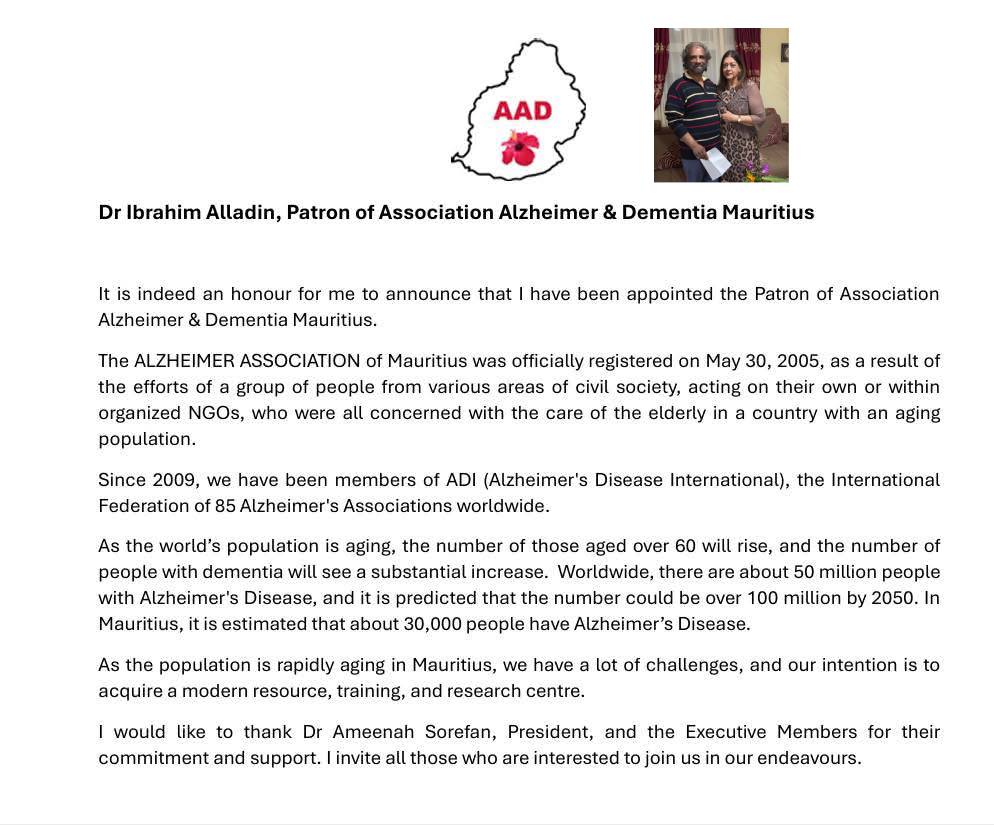
This is our news and events section
Dr Ibrahim Alladin, Patron of Association Alzheimer & Dementia Mauritius

World Health Assembly Updates! | WHA approves extension to the Global action plan on dementia, and more from the 78th WHA
https://mailchi.mp/382be61393bc/save-the-date-for-adi-17003749?e=52e741f626
In loving memory of Yolande, who dedicated her time and passion as a Yoga Coach at the Association Alzheimer & Dementia for six remarkable years. Her contributions and the warmth she brought to our community will never be forgotten. You will always be missed, and your legacy will continue to inspire us. Rest in peace, dear Yolande.
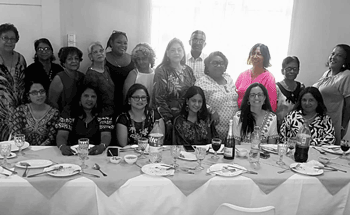
End of Year Celebration 2024
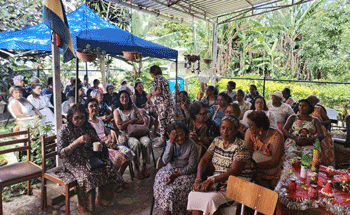
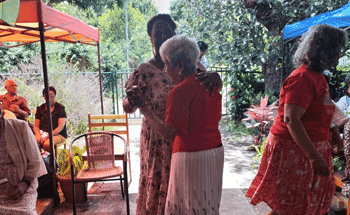
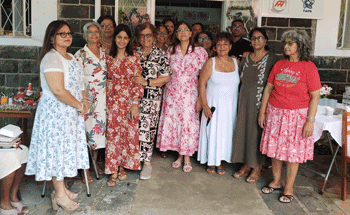
Sensitisation programme at Coromandel Community Centre.
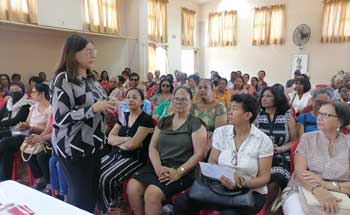
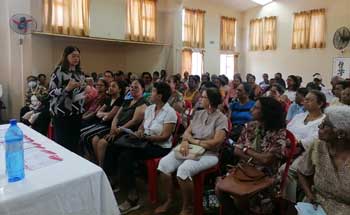
World Alzheimer Month - Memory walk 21st September 2024
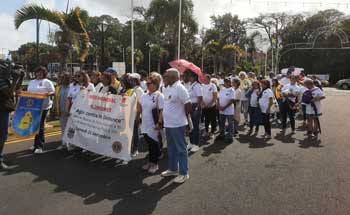
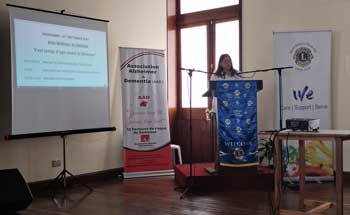
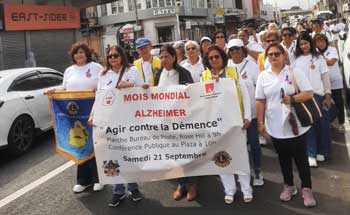
Award Ceremony for NSIF
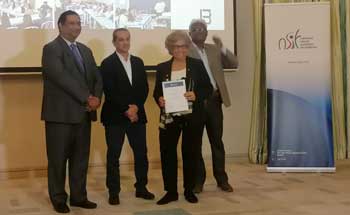
Award Ceremony MITD, where Dr Sorefan, Ms Planel and Ms Saramandif were the Resource person.
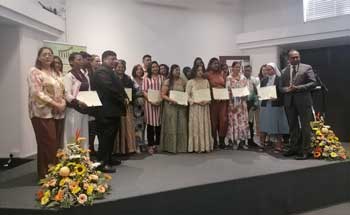
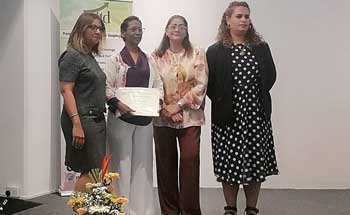
Sensitisation programme at Triolet Social Welfare Centre.
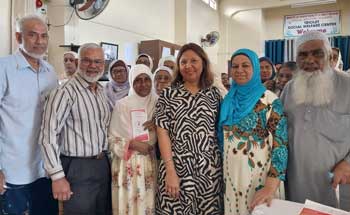
Sensitisation Programme at Montagne Blanche Social Welfare Centre.
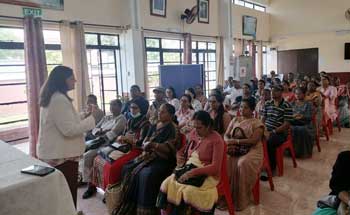
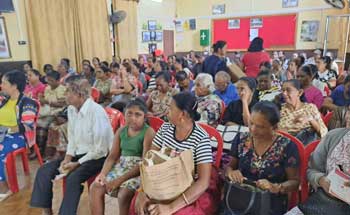
Sensitisation programme at Plaines Des Papayes Social Welfare Centre.
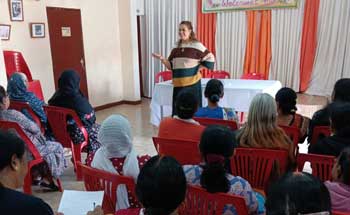
Sensitisation programme at Camp Fouqreau Social Welfare Centre.
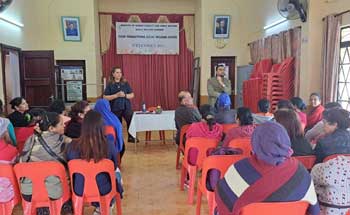
As we all get ready for this year’s World Alzheimer’s Month campaign, we are delighted to share with you the toolkit and the first round of creative assets for the campaign in English, French and Spanish. The toolkits, social media graphics and posters can be found via the following links:
World Alzheimer's Month 2024 social media assets and poster catalogues
https://www.alzint.org/u/World-Alzheimers-Month-2024_Campaign-materials-catalogue-with-download-links_English.pdf
https://www.alzint.org/u/World-Alzheimers-Month-2024_Campaign-materials-catalogue-with-download-links_French.pdf
https://www.alzint.org/u/World-Alzheimers-Month-2024_Campaign-materials-catalogue-with-download-links_Spanish.pdf
World Alzheimer's Month 2024 toolkits
https://www.alzint.org/u/World-Alzheimers-Month-2024_Campaign-Toolkit-English.pdf
https://www.alzint.org/u/World-Alzheimers-Month-2024_Campaign-Toolkit-French.pdf
https://www.alzint.org/u/World-Alzheimers-Month-2024_Campaign-Toolkit-Spanish.pdf
These toolkits and catalogues will be made available to the wider public at the end of the month. The catalogues provide a visual way to browse the social media assets and posters. Simply open the PDF and click on any image that you would like to download.
As you will recall the campaign theme for the 2024 World Alzheimer’s Month campaign will be ‘attitudes to dementia’. During the campaign this year, we will seek to increase levels of awareness of Alzheimer’s disease and dementia and also to tackle the stigma and discrimination which still surrounds the condition. Accordingly, the tag lines for the campaign will be ‘Time to Act on Dementia’ & ‘Time to Act on Alzheimer's’. As hashtags these are: #TimeToActOnDementia & #TimeToActOnAlzheimers
We will follow up with further supporting materials such as social media assets, press releases etc. at a later date, which will reflect the findings of the current World Alzheimer Report survey, in plenty of time for you to use them around the report launch.
Please note that specific assets for the Americas and Caribbean (WHO’s PAHO region) will be made available at a later date, due to the joint campaign. The PAHO team is currently reviewing these, and Diego is setting up a dedicated briefing for the member associations in the region.
We always attempt to ensure that image selection for the posters and social media cards remains as diverse and inclusive as possible, given the global nature of our cause. If, however, you feel that there is a gap for a particular area, please do not hesitate to contact us.
As always, we will be making some bursaries available for World Alzheimer’s Month and applications will open on the 17 June. We will reach out soon with more information.
ADI's 36th global conference on 24-26 April 2024 in Kraków, Poland.
Dr Dorkhy and Dr Sorefan at the AAIC Satellite meeting in Capetown on Dementia.
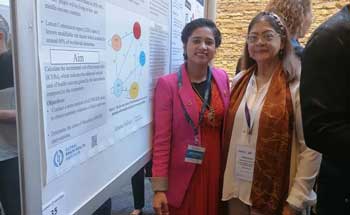
Dr Dorkhy received the award for best poster presentation at the AAIC Satellite meeting in Cape Town
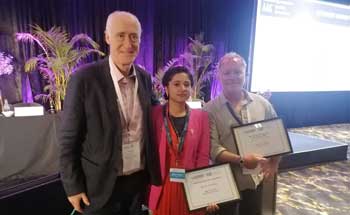
Fingers meeting at ADI Conference Krakow President Dr Ameenha Sorefan and Treasurer MRs Desiree Job with Prof Mia Kivipelto and Francesca Mangialashe of WWW.fingers
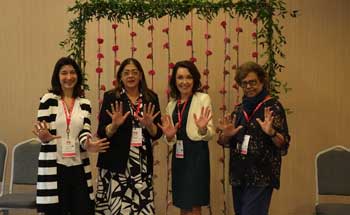
AGM Held on the 24th February 2024 at 10.30am.
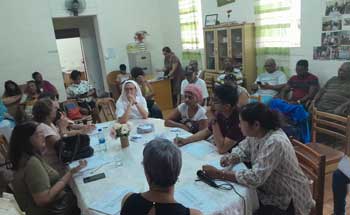
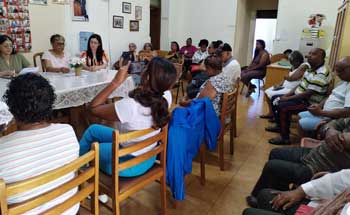
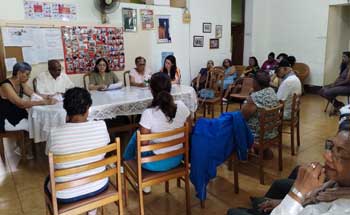
Lunch offered to all staffs and beneficiaries from Chingadoo Family.



Participating in the Mega Health Day at the Municipality of Curepipe.
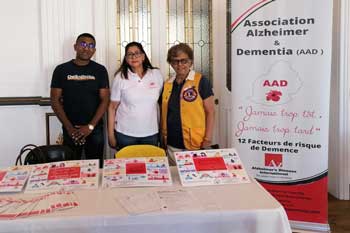
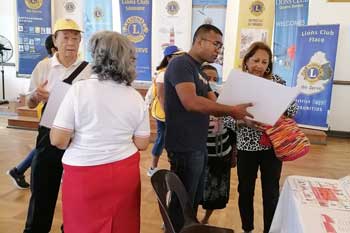
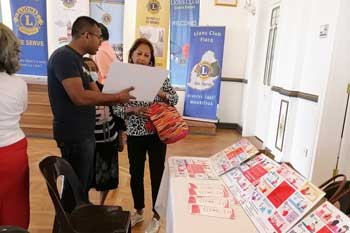
Sensitisation programme for the Rotary Club of Curepipe, National Women Council Phoenix & Dr Sorefan President of the Association was at Bel Air Social Welfare Centre talking about prevention of Dementia.
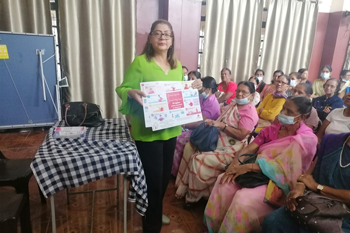
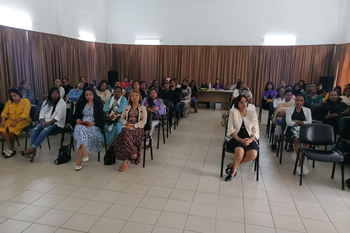
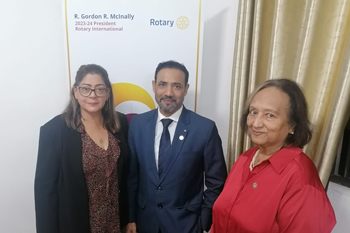
Sensitisation programme at Soonee Muslim Senior Citizen Welfare Association & Mt Roches
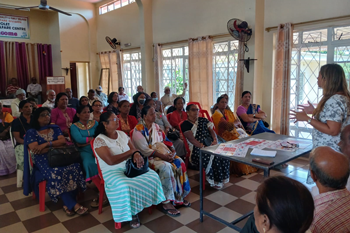
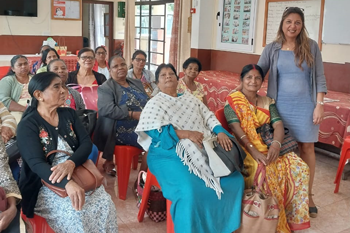
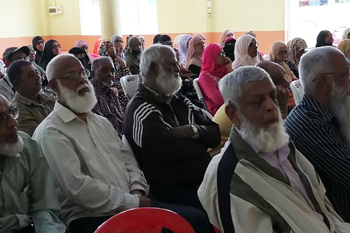
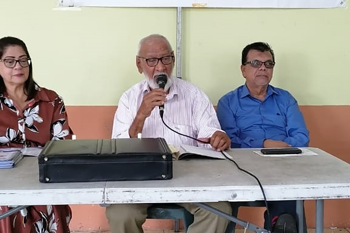
World Alzheimer Day on 21st September 2023
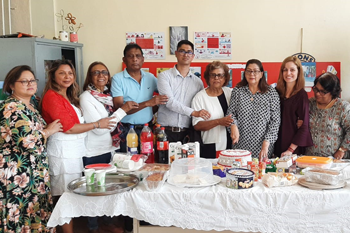
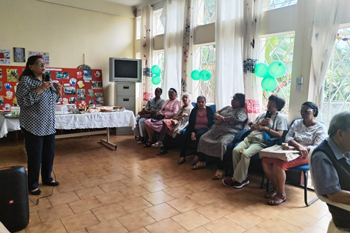
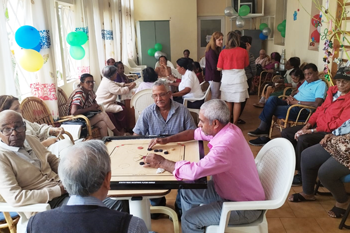
Handy Crafts made by the beneficiaires
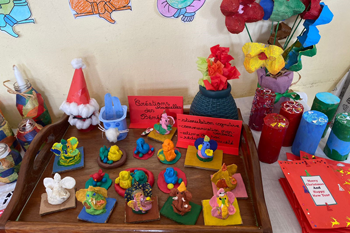
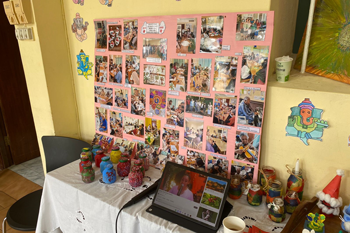
Day out for beneficiairies at Trianon Shopping centre
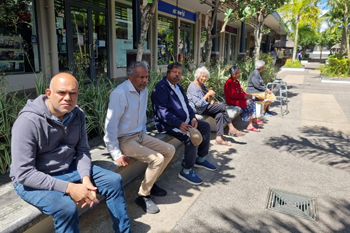
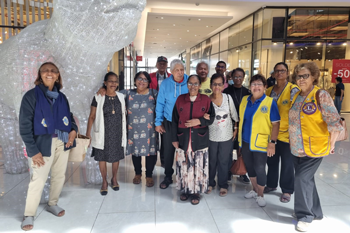
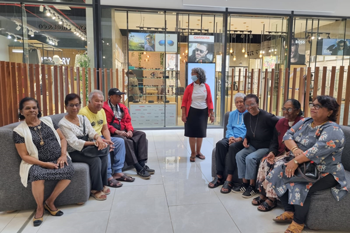
Celebration of the 75th Anniversary of the World Health Organisation Health for All, Move for Health, Walk for Life
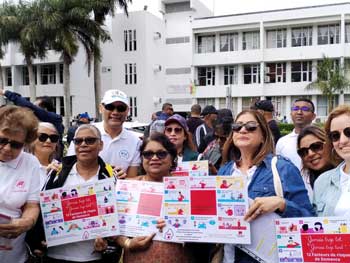
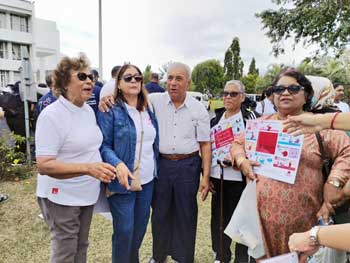
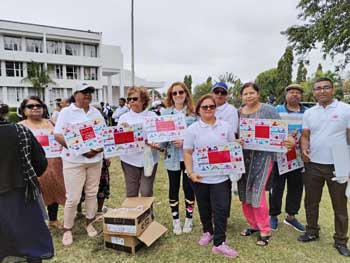
Lunch offered to beneficiaries on different occasions by the Standard bank team.
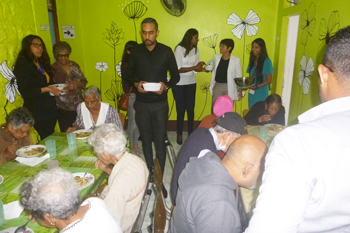
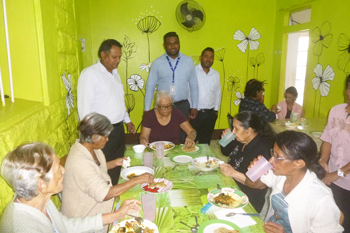
Sensitisation 2023
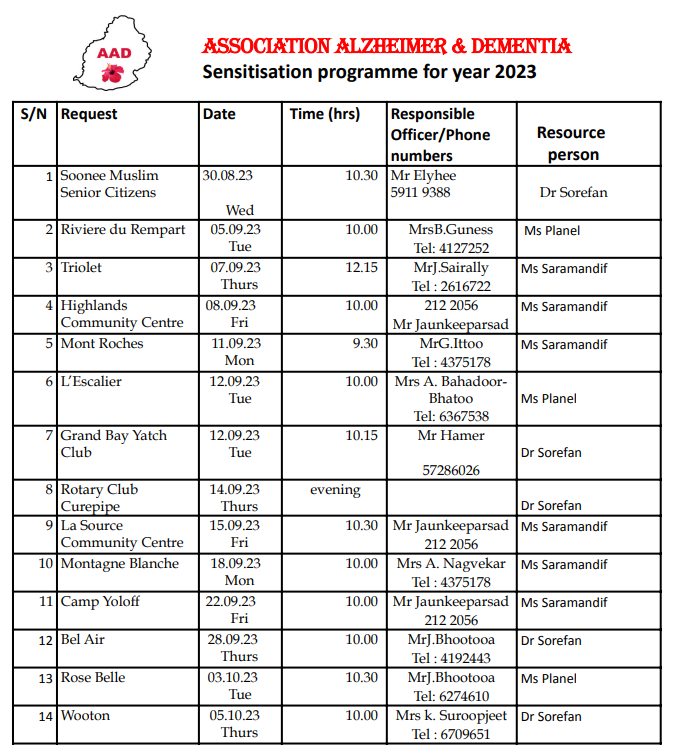
Visit of the Commissioner of Rodrigues Mr Volbert, DH Ms Prudence and advisor, Ms Gaspard at the centre on the 16th August 2023.
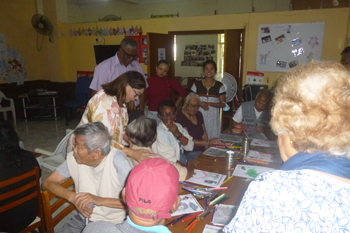
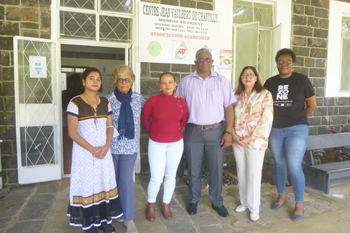
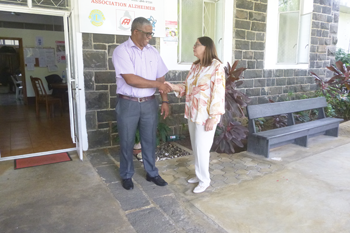
Celebration Independence Day of Mauritius
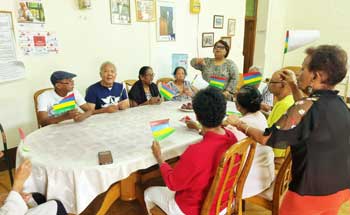
End of year party preparation
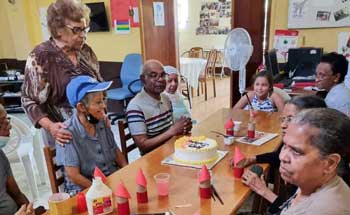
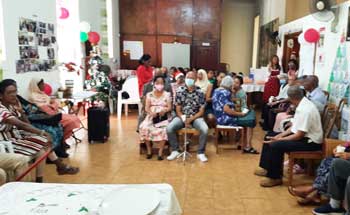
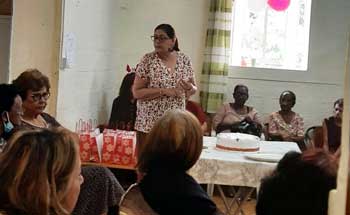
Divali preparation and celebration with the beneficiaries
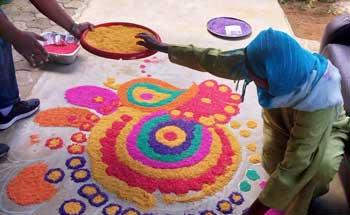

Dear Friends and Colleagues,
On behalf of everyone here at ADI, we just wanted to congratulate you all for an incredibly successful Alzheimer’s Month! It is not an over exaggeration to say that it all wouldn’t be possible without the hard work and tenacity of you all. Thank you for all the events you held, all the media coverage you generated, all the social media activity you created throughout the month. You continually inspire the ADI team through your dedication and can-do attitude.
We would also like to thank our World Alzheimer’s Month champions, partners and sponsors: Roche, Biogen, Novo Nordisk, Otsuka, Acadia, Eisai, Lilly, GE Healthcare, Home Instead, MSD and Tunstall for their generosity.
We will follow up in due course with a campaign report but for the meantime I wish you all the best and plenty of rest.
Kind Regards,
Lewis
Lewis Arthurton
Policy and Communications Manager
Alzheimer’s Disease International
57A Great Suffolk Street, London, SE1 0BB
https://www.linkedin.com/in/lewis-arthurton-439102149/
t:+44 20 7981 0880
dd: +44 20 7981 0886
World Alzheimer's Month
A message from ADI CEO Paola Barbarino
It is a joy to write the introduction to this Global Perspective off the heels of an incredibly buzzy World Alzheimer's Month!
First, I want to give so many thanks to our members for their hard work and accomplishments this September, all of which brought moments of sheer happiness and great surprises. Each week was filled with announcements around new initiatives, stories from associations' members and constituents, pictures of in-person events and opportunities to meet with governments (at last!). Some of our members, who only 5 years ago were at our Alzheimer University and learning how to work with the press, were on television giving press conferences!
All across the world, we could feel, hear and see the elation, love, passion and commitment for bettering the lives of people living with dementia, carers, families and communities.
There were so many special moments throughout this month, whether it was Petra in Jordan and the Marina Bay Sands in Singapore being lit up in the colours of our member associations, or Pope Francis highlighting our call in his audience address on World Alzheimer's Day. I could go on.
I am so incredibly proud of what associations and individuals around the world were able to accomplish this September, including that of our own team who worked on the World Alzheimer Report and World Alzheimer's Month campaign.
The road is hard and our work is not over but we are together and more than ever, our voices are rising louder.
Paola Barbarino

Dear Friends and Colleagues,
A huge thank you for all your incredible efforts in making World Alzheimer’s Day such a big success this year.
However, September is not yet over and we need to keep the momentum going until the very last day of the month!!!
· We encourage you to keep promoting and sharing the World Alzheimer Report 2022, as well as the report launch webinar recording.
· We have also linked the new infographics (in English, Spanish, French and Portuguese) here, which you can use for your social media publications and in your presentations going forward.
Thank you to Daniel from FEBRAZ for providing the Portuguese version of the infographics!
· A little reminder to also please tag as many people as you can in your social media posts and use the hashtags #WorldAlzMonth #KnowDementia #KnowAlzheimers !
Thanks for all your wonderful support as always,
Kind regards,
Laura Aubert
Membership Manager and Membership Development Programme Lead
Alzheimer’s Disease International
57A Great Suffolk Street, London, SE1 0BB
t: +44 20 7981 0880
Dear Friends and Colleagues,
On the eve of World Alzheimer’s Day, please find attached a message from Chris Lynch, Deputy CEO of Alzheimer’s Disease International.
Please remember to continue to use the hashtags #WorldAlzMonth, #KnowDementia and #KnowAlzheimers (including their respective translations) on social media, so that we can continue amplify your messages and ultimately, further raise awareness around Alzheimer’s and dementia.
Kind regards,
Lewis Arthurton
Policy and Communications Manager
Alzheimer’s Disease International
57A Great Suffolk Street, London, SE1 0BB
https://www.linkedin.com/in/lewis-arthurton-439102149/
t:+44 20 7981 0880
dd: +44 20 7981 0886

All the beneficiaries and staff of Association Alzheimer were welcome by the Lions Club of Moka for a lunch to commemorate the World Alzheimer Month 2022 at Flic en Flac public beach.
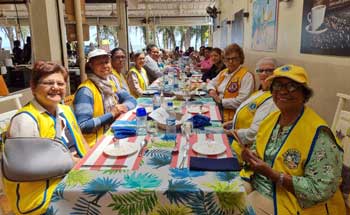
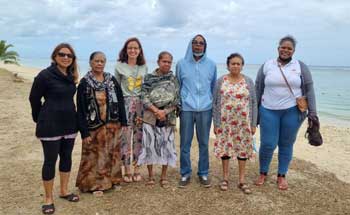
All the beneficiaries and staff of Association Alzheimer were welcome by the Lions Club of Curepipe for a lunch to commemorate the World Alzheimer Month 2022.
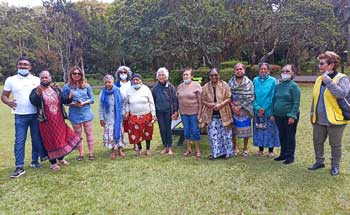
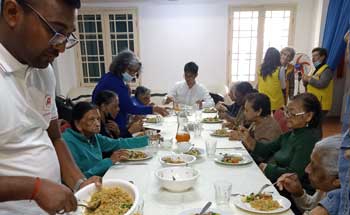
All the beneficiaries and staff of Association Alzheimer were welcome by the Lions Club of Quatre Bornes for a lunch to commemorate the World Alzheimer Month 2022 at the public beach of Flic en Flac.
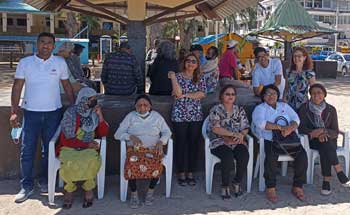
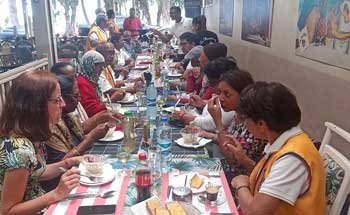
On Saturday 10th September 2022 PTP has decide to take up the challenge of celebrating Non-Government Organization (NGO) which, in their own way, has marked the history of the Republic of Mauritius.
It is an undeniable fact that The Alzheimer Association Mauritius support has been a driving force to help people with this condition since its creation.
Your background speaks for itself and for reasons PTP is proud to name Race 7 of the 19th Race Meeting The Alzheimer Association Mauritius Souvenir Cup.
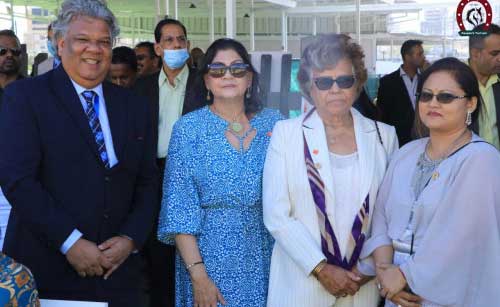
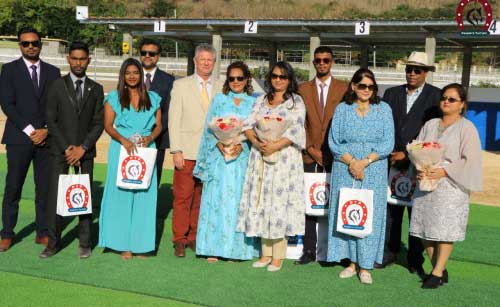
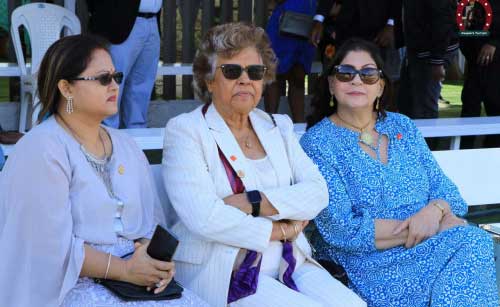

Theme: KnowDementia, #KnowAlzheimers
Awareness raising and challenging stigma are still two of the most important things we do as a dementia community and following recent developments and potential breakthroughs, in both dementia treatment and support, the 2022 campaign will also aim to highlight the importance of support for people living with dementia and families following a diagnosis. The campaign will also continue to encourage and empower people to join the World Alzheimer’s Month movement under the campaign message of ‘Together, we can do so much”
Mo-FINGER: 2-year multidomain lifestyle intervention for cognitive improvement and prevention
of dementia in at-risk adults: a Randomized Controlled Trial in Mauritius
Click here
Donation of Winter kits to beneficiaries of Association Alzheimer by the Lions Club of Quatre Bornes on the 30th June 2022.
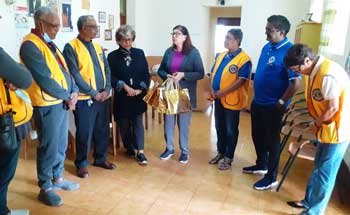
Alzheimer’s Disease International (ADI) is proud to play host to the longest running international conference on dementia, attracting over 1,000 delegates from all corners of the world. The conference boasts an international range of keynote speakers and oral and poster presenters, whose talks report on the latest advances in each of the 7 action areas of the World Health Organization’s (WHO’s) Global action plan on dementia.
With a high standard of scientific and non-scientific content, the conference programme appeals to a broad audience ranging from medical professionals and researchers to informal carers and people living with dementia.
ADI MEMBER SHOWCASE Organisation Stand number 4get-me-not Alzheimer’s
T12 Alzheimer’s Society T13 Alzheimer's Indonesia T14 Association Alzheimer Mauritius T15 Barbados Alzheimer's Association T16 Dementia Australia T17 Iran Dementia & Alzheimer’s Association T18 Panhellenic Federation of Alzheimer’s Disease and Related Disorders T19 TADA, Chinese Taipei T20 Alzheimer's Association Japan Virtual Alzheimers New Zealand Virtual
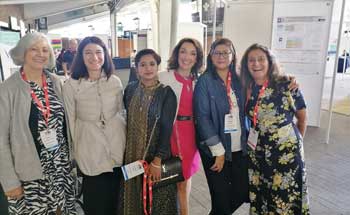
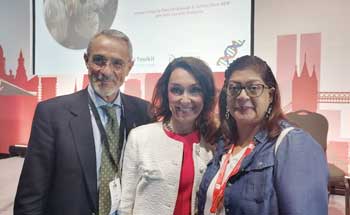
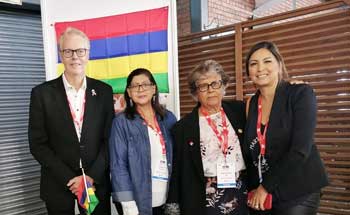
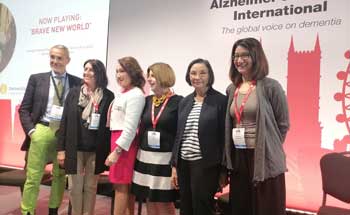
We are pleased to announce that the 35th Global Conference of Alzheimer’s Disease International will be hosted online and in-person in London, UK at The Kia Oval on 9th-11th June 2022.
The theme for the conference, New horizons in dementia: Building on hope, continues the momentum gained during our 2020 conference. The 2022 conference will look at progress and barriers, new developments and innovations across all 7-action areas of the WHO Global action plan on dementia. We’ll shine a light on recent developments and forecast breakthroughs in research, diagnosis, treatment, care, and support, and of course our continued focus on awareness raising, challenging stigma and advocacy.
Visit the conference website for more information
Birthday celebration of Beneficiary.
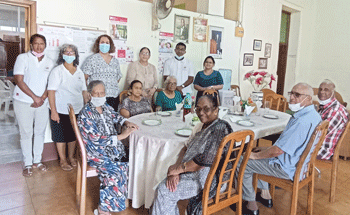
As we count down to the World Health Assembly in May and the launch of 'From Plan to Impact V', we are continuing with our efforts in conjunction with our members to increase the number of national dementia plans implemented around the world.
Read More
Reducing the Risk of Cognitive Decline and Dementia: WHO Recommendations
Read More
End of year 2021 celebration
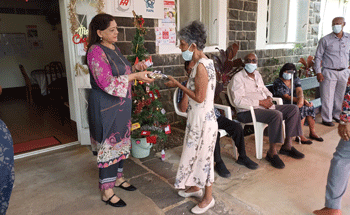
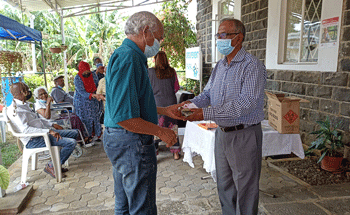
World Alzheimer's Month is the international campaign by Alzheimer's Disease International (ADI) every September to raise awareness and challenge the stigma that surrounds dementia. World Alzheimer's Day is on 21 September each year.
Read more
African Region Collaboration - World Alzheimer's Month
Topic: African Region Collaboration - World Alzheimer's Month
Time: Sep 1, 2021 04:00 PM Nairobi
Every week on Wed, until Sept 29th, 2021, 5 occurrence(s)
Sep 1, 2021 04:00 PM
Sep 8, 2021 04:00 PM
Sep 15, 2021 04:00 PM
Sep 22, 2021 04:00 PM
Sep 29, 2021 04:00 PM
Weekly: https://gbhi.zoom.us/meeting/tJYufu2upj0jG9ZkSBBD2nT3NxgOCoqJkg8V/ics?icsToken=98tyKuCqrTIuHNyTuRiFRowQA4r4LO7xiCFEjfpnlyzHIQQBbDelGPpFHZFwAfLb
Join Zoom Meeting
https://gbhi.zoom.us/j/92394686912?pwd=Q0pSS0JTYVFDcUhvK2huQXovOStOQT09
Meeting ID: 923 9468 6912
Passcode: 743376
Link Global Perspective: World Alzheimer's Month edition
Every September, people come together from all around the world to raise awareness and to challenge the stigma that persists around dementia. September 2021 marks the 10th year of this vital global awareness raising campaign.
21 September also marks World Alzheimer’s Day. For ADI, World Alzheimer’s Day typically coincides with the launch of our World Alzheimer Report. In 2021, our report will focus on diagnosis.
This year’s campaign will shine a light on the warning signs of dementia, encouraging people to seek out information, advice and support, as well as contacting the Alzheimer’s or dementia association in their country.
It is only through a truly global effort that we can raise much needed awareness and challenge the stigma and misinformation that still surrounds dementia, and we are calling on everyone to do something during September, however small or large, through our campaign ‘Know Dementia, Know Alzheimer’s’.
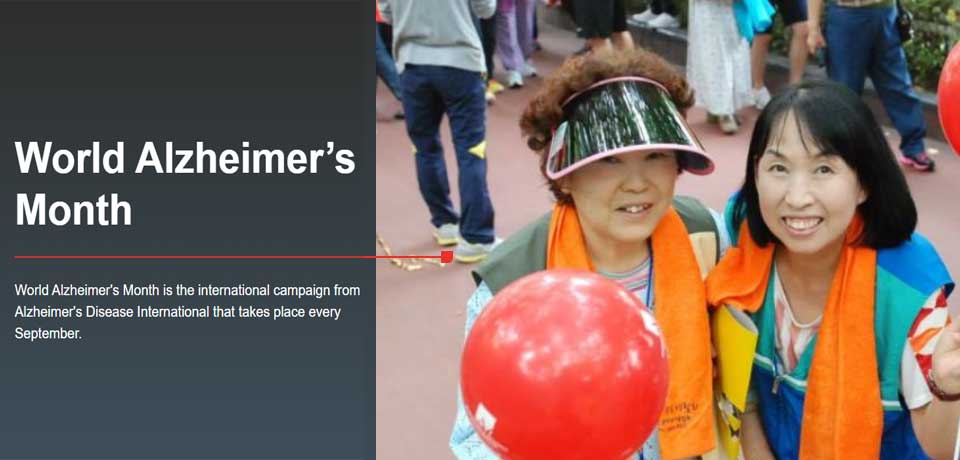
Know Dementia / Know Alzheimer’s” Connaitre la demence / connaitre Alzheimer
Warning signs
Signes de mises en gardes
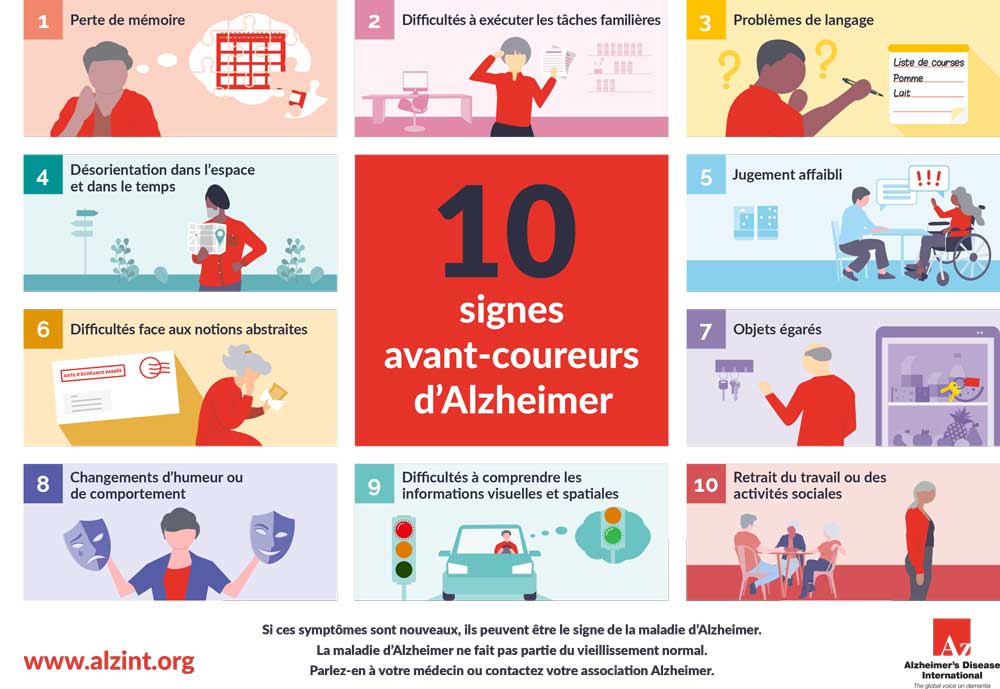
The AGM took place on the 24th July 2021 at 11.30am. Members of Executive Committee , Staffs and parents were present.
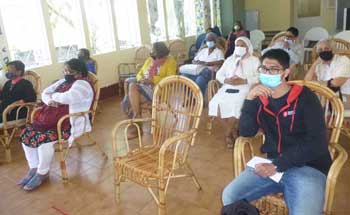
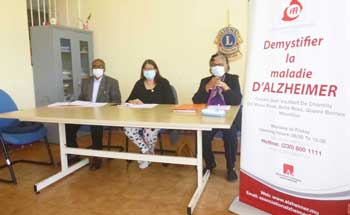
Global Perspective is the new monthly newsletter from ADI https://www.alzint.org/news/adi-council-votes-on-new-members-board-appointees/

Sensitization and Awareness during the World Alzheimer month
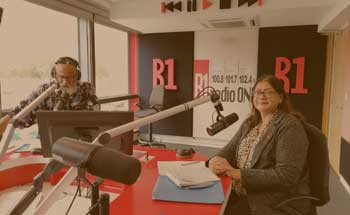
Beneficiaries spent half day at Gros Cailloux with the collaboration of Lions Club of Moka
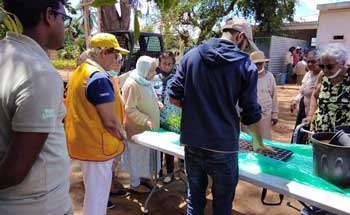
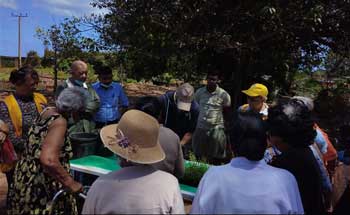
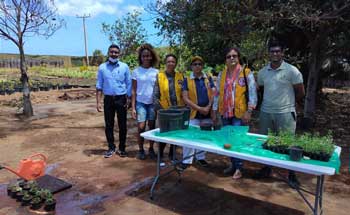
I am sharing with you a statement that we have submitted in advance of the World Health Assembly (WHA), which starts on Monday, 18 May. You'll be aware that the WHA is taking a virtual format this year and will be almost entirely focussed on the global COVID-19 response.
Read
webinar on‘Future Gazing: COVID-19 and dementia’. You can access the Webinar recording here.
Voici quelques nouvelles des actions que nous avons mene durant la periode du confinement a l'Ile Maurice.
1- Travail sur une coalition d’ONG autour de DIS MOI (Droits Humains Ocean Indien) pour reconnaitre la population des personnes agees par la commission humanitaire des nations unies – UN Humanitarian response plan for covid 19 fails to prioritise older people despite highest risk of death. The UN’s humanitarian response plan on covid 19 must be revised to better reflect the specific risks faced by older people caught up in humanitarian crises, Help Age International says.
DROITS HUMAINS OCEAN INDIEN
14.04.2020
The U.N Humanitarian Coordinator
and
U.N High Commissioner for Refugees
Country Representative
Port-Louis
Mauritius
Dear Sir/Madam,
We hope this mail finds you well, in what are quite uncertain times.
We, the representatives of the undermentioned organisations, are appreciative of the huge
humanitarian programmes the UN is undertaking in various countries of which 20 in Africa.
We are writing to highlight the anticipated impact of the COVID-19 pandemic on older people in
countries with high levels of existing humanitarian needs.
As you will know, the highest rates of serious illness and mortality globally have been reported for
older people and those with serious underlying conditions. In China and Italy, both countries with
well-resourced health and care systems, the age gradient in the mortality rates has been alarming.
Ninety-five percent of those who have died from COVID-19 in Europe were over 60, and more than
half of those were over 80. Meanwhile, older people already face well-documented, longstanding
challenges in accessing health services in both development and humanitarian settings. It is no
exaggeration to say that the consequences of COVID-19 outbreaks will be devastating for them and
their families and communities in the coming months.
We are keen to ensure that the Humanitarian Response Plan for countries concerned provides a
robust response to the risks faced by older people in this crisis, to avoid a catastrophic outcome for
many. As with any response, it is vital that activities are data driven, evidence based and targeted at
those most at risk. Given older people’s significant risk in terms of primary health needs, and
secondary humanitarian impacts, it is vital that they are front and center of any response. We strongly
encourage you to consider this in your planning and use your position to ensure leadership and
coordination on this issue among donors and the UN system.
We understand that national HPRs for COVID-19 are to be drawn up or updated in the coming weeks
to feed into an upgraded Global HRP and we would like to offer HelpAge’s full support to ensure that
the rights and needs of older people are well understood in the preparations of the HRP.
We were disappointed to see that the draft COVID-19 plan annexed to the Global Humanitarian
Response Plan launched on 25 March does not mention older people specifically in a list of ‘’most
affected and at risk ‘’ despite being the group with the highest primary needs in this crisis. This list
includes “ People suffering from chronic diseases, undernutrition including due to food insecurity,
lower immunity, certain disabilities and old age’’.
We have attached a briefing on our analysis of the Global Humanitarian Response Plan and some
concrete proposals for where we feel it should be strengthened. HelpAge’s CEO, Justin Derbyshire, has
been in contact with Mark Lowcock regarding our analysis of the Global Response Plan and we are in
touch with OCHA, UNHCR and IASC contacts in Geneva to support the process globally.
As a coalition of NGOs advocating for the rights of older people in Mauritius we would be delighted to
speak with you to discuss the risks and challenges to older people from COVID-19 further. If you
require any information please call us on Tel: 5794-7771
With best regards
Vijay Naraidoo
Secretary-General
Follow: List of NGOs forming part of the Coalition (dont le Groupement FIAPA Maurice)
UN Humanitarian Response Plan for COVID-19 fails to prioritise older people, despite highest risk of death
· Older people must be explicitly recognised as a population group “most-affected and at risk”
The UN’s Humanitarian Response Plan on COVID-19 must be revised to better reflect the specific risks faced by older people caught up in humanitarian crises, HelpAge International said today.
HelpAge International has delivered an analysis of the humanitarian plan to fight COVID-19 – launched by the UN Secretary General launched on 25 March along with a US$2.1 billion appeal – highlighting where the plan fails to deliver protection for older people at risk.
Older people have not been specifically included in a list of those ‘most affected and at-risk’ despite being the group with the highest primary needs in this crisis. This is a glaring omission given that donor and operational decisions will undoubtedly be driven by this list and could limit the humanitarian support made available to older people.
‘Old age’ is included at the end of a list of ‘conditions’ that people suffer from, increasing their risk.
“Older age is not a condition to be suffered and it is unacceptable to represent it in this way. It is unthinkable that they are not included explicitly, acknowledging both the immediate and long-term risks they are exposed to by the virus,” said Justin Derbyshire, Chief Executive at HelpAge International.
There are longstanding issues with older people being excluded in humanitarian response. If humanitarians are to fulfil their mandates and save lives, this has to change with the COVID-19 response.
“This is no time for business as usual. UN agencies, donors and humanitarian organisations need to put aside pre-existing plans and priorities and commit to providing life-saving assistance to those most at risk – which specifically includes older people for COVID-19 - in the spirit of the humanitarian principles that guide us all.
“We welcome OCHA’s commitment to revise the plan and urges members of the IASC to take our proposals on board. Through the UN global humanitarian plan, UNOCHA and the IASC need to provide the leadership and coordination to ensure that older people are fully included in COVID-19 responses,” said Justin Derbyshire.
COVID-19 presents specific risks for older people. Ninety five percent of those who have died from COVID-19 in Europe were over 60, and more than half of those were over 80. Initial research in China based on over 44,000 cases of Covid-19, showed a mortality rate of 2.3% for the general population, rising to 8% in those aged 70-79 and nearly 15% in those 80 and over.
HelpAge International is asking OCHA, members of the Inter Agency Standing Committee and the whole humanitarian community to stand in solidarity with older people and take concrete steps to strengthen the approach in the next iteration of the Humanitarian Response Plan.
This includes:
· Recognising older people explicitly alongside other population groups considered “most-affected and at risk”.
· Strengthening the humanitarian needs analysis acknowledging that older people face significant health risks, discrimination and longstanding, systematic barriers accessing humanitarian assistance.
· Strengthening implementation plans and guidance and monitoring framework to ensure that measures to reduce risk and respond to older people’s needs are implemented and monitored.
· Ensuring that older people are represented within national level coordination and prioritised within funding mechanisms.
For detailed analysis and recommendations, please read our briefing document on the COVID-19 Global Humanitarian Response Plan
2- FIAPA France
Texte Ages et confinement – Alertes (Conseil scientifique federation 3977 contre les maltraitances, commission age droits liberte (SFGGG), FIAPA, Association francophone des droits de l’homme) – sous coordination du texte par R. Moulias
Ce texte a inspire les reflexions qui ont permis ma participation aux evenements mediatises plus bas
a. Des fragilites accompagnent inegalement l’avancee en age
b. L’epidemie actuelle entraine un risque eleve chez d’autres populations
c. Le confinement protege efficacement, mais entraine des effets nocifs a tous les ages – surtout dans la vieillesse et la jeunesse, si elle dure
d. Il est plus efficace d’isoler le contaminateur possible
e. Il sera juridiquement difficile de justifier le confinement des uns, la libre circulation des autres
f. Il est ethiquement impossible de justifier le confinement indefini des uns, la libre circulation des autres
g. 3 alertes pour des protections efficaces dans la duree
3- Alzheimer disease international – participation au webinar du 22.4.20 – Supporting people with dementia, the covid 19 experience and advice from around the world
Proposition au centre d’accueil Alzheimer de reprendre la hotline via la secretaire pour maintenir le contact avec les membres et avoir une reponse des medecins et therapeutes aux situations de detresse ou pour les conseils aux familles.
Selon quelles modalites assurer le port du masque pour les patients ?
Comment respecter la distanciation sociale ?
Comment maintenir les modalites de communication avec les patients en maisons de retraite ou EHPAD ? whatsapp, facebook, instagram, telephone…
4- Ma participation a differents medias
a. Le journal defi seniors quotidien 21 avril 2020
Epidémie de covid-19 : comment prendre soin de nos aînés ?
Système immunitaire plus faible, maladies chroniques, les personnes âgées sont plus vulnérables face au risque d’infection du covid-19. Comment protéger nos aînés et comment les aider au mieux ? Nous avons posé la question à Pascale Dinan, gériatre et présidente du groupement FIAPA, qui nous donne quelques recommandations.
Dr Pascal Dinan.
Rester confiné
« Le confinement est une mesure importante pour protéger les couches les plus vulnérables de la population, notamment les seniors” explique la gériatre. Qu’elles habitent seules, avec leurs enfants ou qu’elles soient dans des maisons de retraite, les personnes âgées doivent absolument rester confinées et ne pas sortir pour aller faire leurs courses ou se rendre à la pharmacie », poursuit-elle.
Faire preuve de solidarité
En cette période de confinement, il est important de se soutenir et d’être solidaire. Famille, amis, ou volontaires doivent aider les personnes âgées. « Vous pouvez aider les personnes âgées en allant faire leurs courses, en achetant leurs médicaments ou même en leur proposant une écoute, surtout si elles vivent seules », précise Pascale Dinan.
En maison de retraite, ce sont les aides-soignants et tout le personnel qui sont à l’écoute des besoins de leurs pensionnaires. A Maurice, certaines maisons de retraite ont mis en place des systèmes de rotation du personnel où celui-ci reste confiné pendant plusieurs jours.
Continuer ses traitements
Beaucoup de seniors souffrent de maladies chroniques telles que le diabète ou l’hypertension. S’il est conseillé aux seniors de ne pas se rendre dans les pharmacies, elles doivent en revanche continuer impérativement leur traitement. Les proches peuvent aller récupérer ces médicaments sur présentation d’une prescription. Pour ceux qui n’ont pas de proches, sachez qu’il y a certaines pharmacies se proposent de livrer à domicile.
La gériatre recommande également à toutes les personnes atteintes de maladies chroniques ou de problèmes de santé de rester en contact avec leur médecin traitant.
Se faire vacciner contre la grippe
Le gouvernement a lancé depuis lundi 6 avril sa campagne annuelle de vaccination contre la grippe. Bien qu’elle arrive un peu plus tôt que l’année dernière, les seniors peuvent se faire vacciner en toute sécurité. Des caravanes mobiles sillonnent le pays pour permettre à tout un chacun de bénéficier du vaccin antigrippe sans avoir à se déplacer, ni à faire la queue.
· La campagne est suspendue temporairement pour le moment. Les vaccins sont en rupture de stock et la campagne sera relancée d’ici quelques jours.
Renforcer son système immunitaire
Avec l’arrivée de l’hiver, il est important de renforcer son système immunitaire. Pour cela, pensez à faire le plein de vitamines, à bien vous hydrater et entretenir une activité physique. « En cette période d’épidémie, le meilleur moyen de vous protéger est de rester chez vous », conclut Pascale Dinan.
b) Participation au programme de radio plus sur l’impact psychologique du confinement sur les populations vulnerables (seniors, autistes, sujets ayant des addictions)
c) participation au journal Defi Quotidien sur les risques d’accidents domestiques chez les seniors confines a domicile
Vous en souhaitant bonne reception,
Pascale Dinan.
Groupement FIAPA Maurice.
Parent Support Group held on the 24th February 2020. Theme : « La démence dans les grandes lignes ».


Talk at Bramsthan Social Welfare Centre by the Psychologist Safia Adamjee.
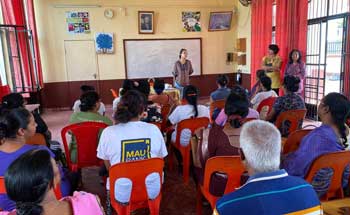
The Beneficiaries spent half day at the Domaine des Gros Cailloux in the collaboration of the Lions Club of Curepipe.
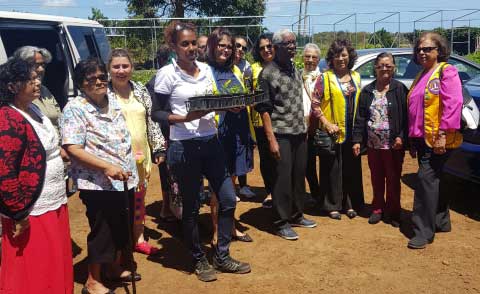
Dr A. Sorefan delivered a talk at Camp Fouquereaux Social Welfare Centre.
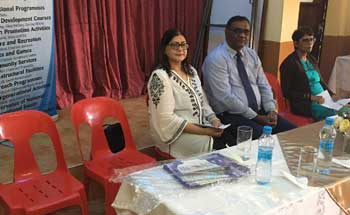
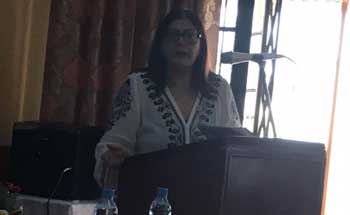
Dr A. Sorefan delivered a talk on “Let’s talk about Dementia – End the Stigma”
At Rose Belle Social Welfare Centre.
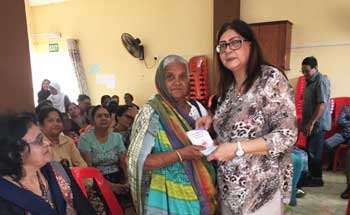
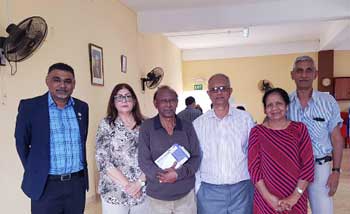
During the World Alzheimer's Month, our therapists give talks on dementia across the island. Here is Laurence Kisnorbo, clinical psychologist, in Saint Julien social welfare centre.

Dr Ameenah Sorefan presented the two delegates. A session of work at the Centre with the Committee Members.
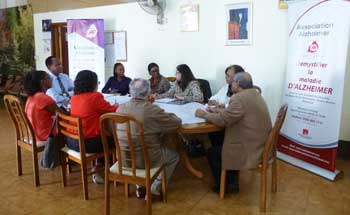
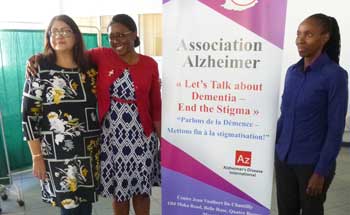
Mrs Kasimu Elizabeth, CEO & Founder Alzheimer’s & Dementia Organisation Kenya.
1st presentation – Training of professionals at Candos Conference Hall
2nd presentation – Medical Update Group
3rd presentation – Ebene Core Students of University of Mauritius
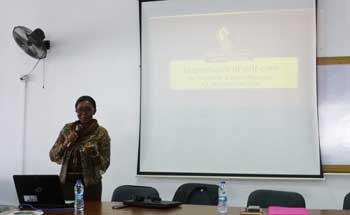
Dr Gichu Muthoni – Head of Ageing, Ministry of Health
1st presentation – Training of professionals at Candos Conference Hall
2nd presentation – Medical Update Group
3rd presentation – Ebene Core Students of University of Mauritius
Exercise and dementia
Exercise precription and dementia
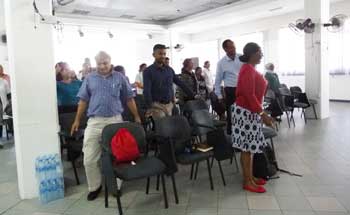
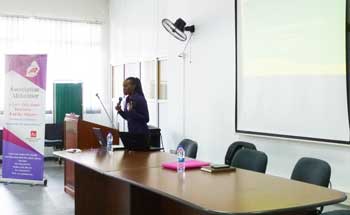
Programme September 2019
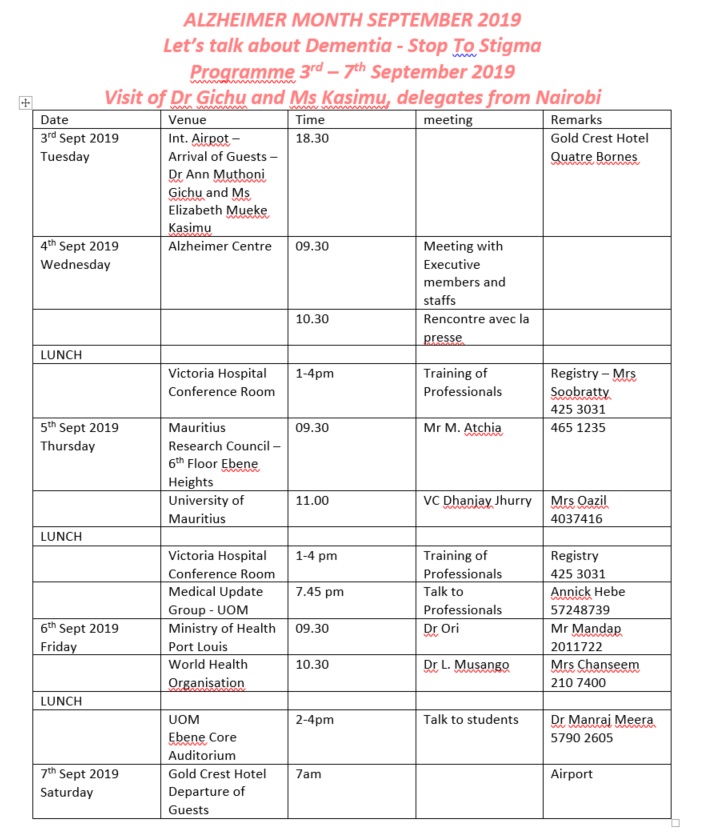
Message from Mrs Ameenah Sorefan - President of Alzheimer Association Mauritius
Newsletter
Dementia is a rapidly growing public health problem affecting around 50 million people around
the world. There are nearly 10 million new cases every year and this figure is set to triple by 2050.
Dementia is a major cause of disability and dependency among older people and can devastate the
lives of affected individuals, their carers and families. Additionally, the disease inflicts a heavy
economic burden on societies as a whole, with the costs of caring for people with dementia estimated
to rise to US$ 2 trillion annually by 2030.
Read more
Dear Sir/Madam,
The Association Alzheimer, the NGO working for people living with Dementia and Alzheimer Disease needs your collaboration to encourage Mauritians to participate on an online survey.
ADI – Alzheimer’s Disease International, an umbrella body, with which we are affiliated, is conducting a worldwide survey to know the attitudes of people towards dementia. We know that stigma is still a great barrier, which prevents people with dementia and their families to come forward for diagnosis and care. Results from this survey will help us identify useful tools for us all to change the face of stigma and increase awareness globally.
We would like to have your support by publishing the link below so as to help us spread the survey to the public and get a strong feedback regarding dementia and Alzheimer Disease from the Mauritian population.
The closing date of the survey is 14th June 2019 and the link is www.alz.co.uk/research/world-report-2019. It will only take 10 mins to do it .A world report with the results of the survey will be launched in September, during the month of Alzheimer.
If you need any further information, please contact us on 466 0731(inbetween 9am to 1pm) during weekdays or associationalzheimer.mu
We thank you for your usual collaboration.
Thanks and Regards,
Bhavna Pillay
Administrative Secretary
Alzheimer Association
Centre Jean Vaulbert de Chantilly
Old Moka Road, Belle Rose
Quatre Bornes
Tel: 466 0731 Hotline 8001111
WEB: www.alzheimer.mu
Public Lecture by Dr Jean-Marc Eychène on "Prise en charge globale des personnes vivant avec la Maladie D’Alzheimer"
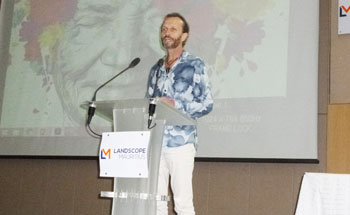
Public lecture on the 28th September 2018 at 14hr. Launching of the World Alzheimer Report 2018 and offering a copy to Dr Micheal Atchia.
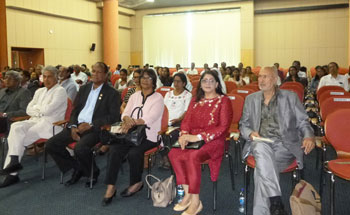
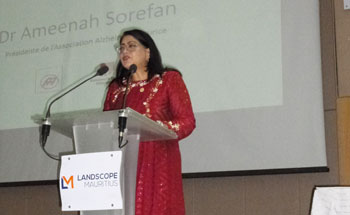
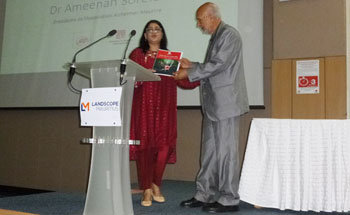
Memory walk held on the 23rd September 2018 at Mahébourg With the participation of the Lions Club of Moka and Grand Port

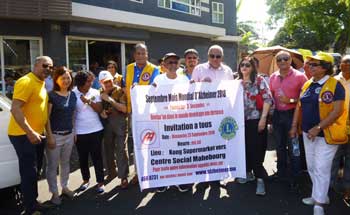
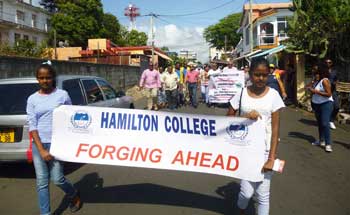
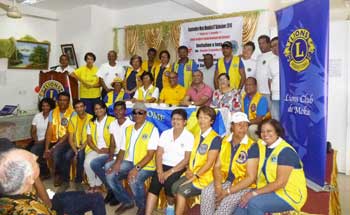
Outting with the beneficiaries at Jardin Balfour and lunch in a restaurant
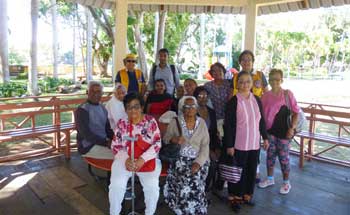
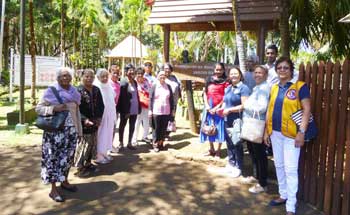
The public and parents were invited to an open discussion on the disease where there were questions and answers.
Chief guests were:
1. Lady Sarojini Jugnauth.
2. Mr Dana Chengen from MACOSS
3. Mayor of Quatre Bornes, MRs Soolkha Jepaul-Raddhoa
It was a great success.
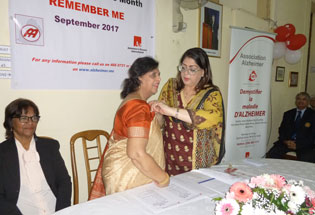
On September 17, 2017, the Alzheimer's Association of Mauritius in collaboration with the Lions Club of Flacq oraganised a “Memory Walk” in the district of Flacq.
Chief guests present were the Chairperson Mr Dana Chengan of the Mauritius Council of Social Service (MACOSS).
For the first time in Mauritius, the event took place in a rural area to symbolically break geographical and social barriers in order to reach out to communities with less accessibility to older-age mental health facilities and resources. Sensitizing remote communities on dementia and promotion of progressive destygmatisation of it were set as the primary objectives of the event.
The Memory Walk was attended by volunteer, health professionals, Lions Club of Moka, Quatre Bornes and Curepipe, public as well as the media from local press and TV.
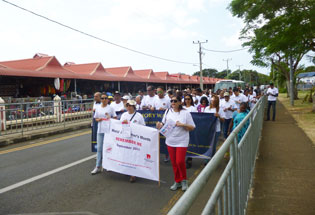
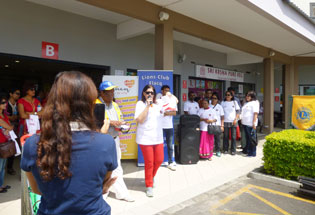
First picture - Mrs Desveaux, is thanking the members of Rotaract of Quatre Bornes for their collaboration to make the party successful.
Second picture - Bûche De Noel - Members of Rotaract Club , Alzheimer Association and patients.
Third picture - The President of Alzheimer Association addressing the patients, staffs and thanking the Oasis group for their collaboration.
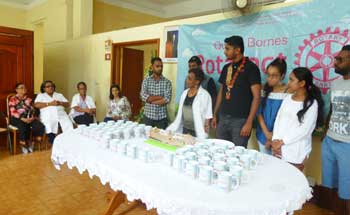
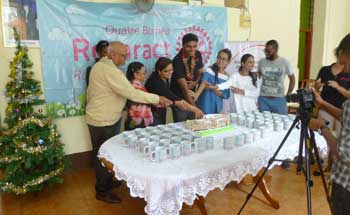
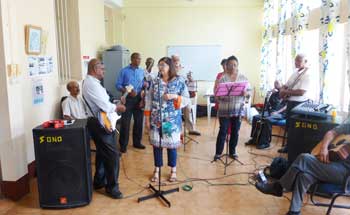
On the 15th December the Alzheimer Association celebrated the end of year party with the collaboration of the Oasis Group.
All the patients were invited.
They danced and sing.
Then they were all warmly welcomed for a lunch.
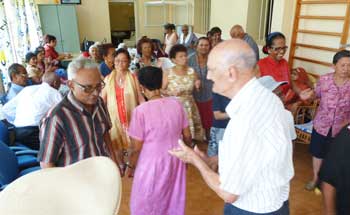
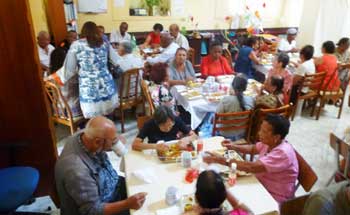
The Association Alzheimer of Mauritius organised a Memory Walk from the Alzheimer Centre on Saturday 24th September, to sensitise the public on Alzheimer's Disease
Eminent personalities were present:
(1) the Vice President of the Republic, HE Mr Paramasivum Pillay Vyapoory, GOSK
(2) the Mayor of the town of Quatre-Bornes; Mr. Atmaram Sonoo
(3) the Minister of Health and Quality of Life; Mr Anil Gayan
(4) the Chairperson of the Mauritius Council of Social Services( grouping of NGO's); Mr. Geerish Bucktowonsing
(5) Members of the Rotaract Club of Quatre Bornes
(6) Patients, parents and members of the association.
It was a joyous and entertaining event, where balloons ,posters and refreshments were distributed.
After the walk, key messages were delivered by the main guests gathered in the courtyard of the Municipality of Quatre-Bornes
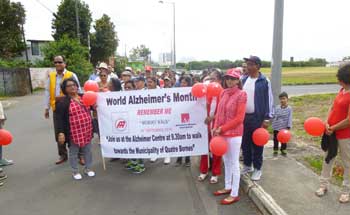
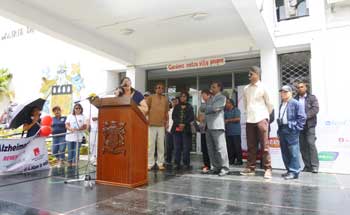
Dr Ameenah Sorefan, Consultant in charge(Psychiatry) and President of Alzheimer Association Mauritius delivered a public talk on Alzheimer’s disease to the Senior Citizens council of Highlands, followed by participation in a 45 minutes TV prgramme, “Priorité Santé” on Dementia and Alzheimer Disease.
Activities for people with dementia were organized throughout the month, in partnership with Rotaract Club of Quatre – Bornes and Lions Clubs around the country.
An Open Day at the Day Care Centre of Alzheimer’s Association marked World Alzheimer’s Day on 21st September and was attended by volunteer health professionals, public as well as the media from local press and TV.
A “Memory Walk” was organised on 24th September 2016 which started at the Day Care Centre of the Alzheimer’s Association in Belle Rose and ended at the Municipality of Quatre Bornes where the Mayor Mr Sonoo, the Vice President of the Republic of Mauritius HE Mr Vyapoory, Minister of Health and Quality of Life, Mr Gayan and others made speeches to close the walk.
Our new project is to have our own Resource and Day Care Centre where we will be able to accommodate 30 patients daily regarding the increase in the demand the actual space is not sufficient.
The Resource and Day Care will have all the amenities such as:
a. A Training unit
b. Administrative offices
c. Consultation rooms
d. Conference room (50-60 persons)
e. Activities rooms
f. Garden and Fitness area
g. Guest room for visiting experts
h. Parking area
ADI and the Hungarian Alzheimer's Society (HAS) hosted the 31st International Conference of Alzheimer’s Disease International in Budapest, Hungary. The conference was attended by nearly 900 delegates including many people with dementia, along with professional and family carers, researchers, clinicians, and staff and volunteers of Alzheimer associations. Delegates came from 70 countries across the world, including representatives from Alzheimer Europe, the World Dementia Council and Dementia Alliance International.
The conference theme was Dementia: Global Perspective – Local Solutions, reflecting the varied programme covering care, medical research and lived experience on both a global and national level, demonstrating the importance of working together.
Mr Gilbert Ponton, the Secretary of the Executive Committee attended the Conference
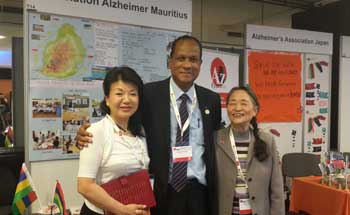

The purpose of this report is to understand the main issues affecting women in relation to dementia from an international perspective. The report examines the effect of gender on three specific groups: women living with dementia; women caring for people with dementia in a professional caring role; women undertaking an informal caregiving role for someone with dementia.
The report also focuses on cross-cutting issues, including factors affecting women in low and middle income countries (LMICs); family structures and kinship; and the effects of migration.
Read More
Visit of Hon Fazila Daureeawoo, Minister of Ministry of Social Security at the Centre on the 21st September 2015.
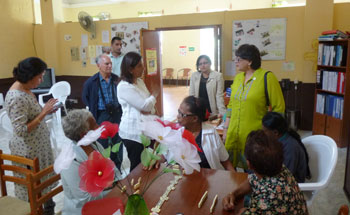
Launching of the World Alzheimer Report 2015 on the 17th September – done by Her MRs Monique Ohsan Bellepeau, GOSK and Hon. Mr Anil Gayan was present.
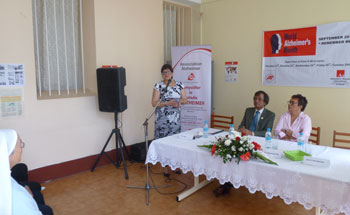
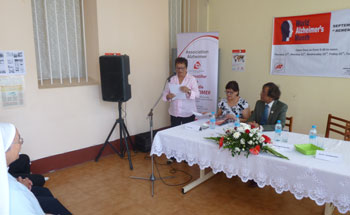
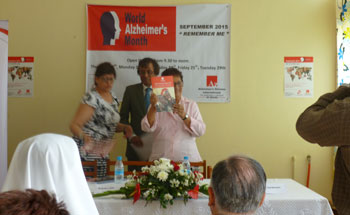
Dear members and friends,
Tomorrow (25 August) we will launch the World Alzheimer Report 2015 : The Global Impact of Dementia.
Shortly after 00:01 (UK time), our brand new microsite (website) will launch, featuring infographics , key figures from the report, downloads and a ‘Call to Action’ section, stating how different sections of society can take action to help support people living with dementia. You can access the microsite here. This is where you will find all the un-embargoed materials once the embargo has lifted at 00.01.
At 13:00 on 25 August (UK time) our global launch of the report will be broadcasted live our web TV show. This will be a roundtable discussion with Marc Wortmann, Prof Martin Prince and Prof Graham Stokes. You can watch this live here and it will be available to watch on demand on the microsite after 24 hours.
We expect this report will attract a lot of attention, both in the news and on social media. ADI will be Tweeting and posting on Facebook throughout the day. Be sure to follow our official Twitter and Facebook accounts for all the updates. The official hashtag is #WorldAlzReport.
We also have the latest 2015 individual country data available on prevalence, incidence and cost. We will only make the specific country data available to the relevant associations.
On Tuesday we aim to send the Spanish media release and Summary Sheet to our Spanish members.
If you require any support with your media outreach, please let us know.
I wish you much success with your own media activities.
Best wishes from the ADI team.
You can access the microsite here
You can watch this live here
Twitter
Facebook
#WorldAlzReport
Dear friends,
We’re pleased to inform you of a brand new Alzheimer’s Disease International (ADI) report, Women and Dementia: A global research review, which will launch this Friday.
The purpose of this report is to understand the main issues affecting women in relation to dementia from an international perspective. The report examines the effect of gender on three specific groups: women living with dementia; women caring for people with dementia in a professional caring role; women undertaking an informal caregiving role for someone with dementia. The report also focuses on cross-cutting issues, including factors affecting women in low and middle income countries (LMICs); family structures and kinship; and the effects of migration.
Please find an embargoed copy of the report and a press release, which are not to be circulated until Friday 5 June at 00:01 (UK time). We kindly ask that you respect this embargo with media and any other external parties. From Friday morning, you will find an online copy of the report here: www.alz.co.uk/women-and-dementia
We would like to thank everyone involved in developing the report. We hope this will help your advocacy work in your countries, and if you have any questions or would like any assistance with media and press activity please do let us know. ADI will bring the report to the attention of the appropriate persons within the United Nations and World Health Organization.
Best wishes,
Marc
Women and Dementia Report (Embargoed)
Women and Dementia Report - Media Release
We received the visit of Ms.Rosa KORNFELD-MATTE, the Independent Expert on the enjoyment of all human rights by older persons on the 4th May 2015.
She did a survey at the centre with parents regarding the management and care of people suffering from Alzheimer Disease.
There was a positive response from the parents indicating the support and advice they obtain here.
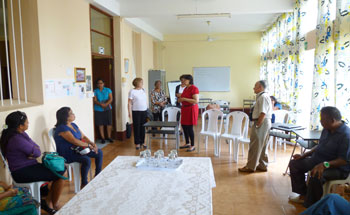
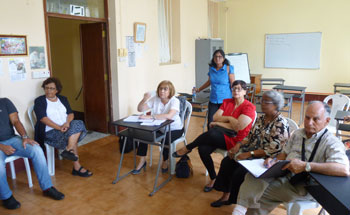
Dear Members you are kindly invited to be present on the 28th March 2015 at 1 pm for the Annual General Assembly at Convent of Belle Rose Mauritius.
Please note you can forward the proxy by email.
DOWNLOAD OFICIAL LETTER
The Association Alzheimer of Mauritius organised a Memory Walk from the Alzheimer Centre on Saturday 20th September, to sensitise the public on Alzheimer's Disease
Eminent personalities present were H.E the Vice President of the Republic, Mrs Monique Bellepeau;
the Mayor of the town of Quatre-Bornes;
the Chairperson of the Mauritius Council of Social Services( grouping of NGO's);
Patients, parents and members of the association.
It was a joyous and entertaining event, where balloons ,posters and refreshments were distributed.
After the walk, key messages were delivered by the main guests gathered in the courtyard of the Municipality of Quatre-Bornes
The event was shown on prime time news on the 21st sunday evening.
1st picure below : The Lions Club of Moka donated a cheque to Alzheimer Association on the occasion of the Alzheimer Month.
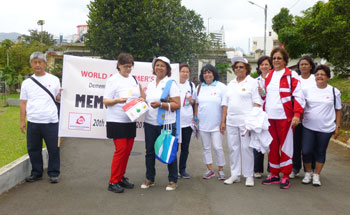
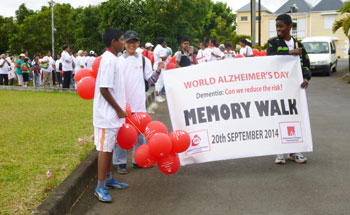
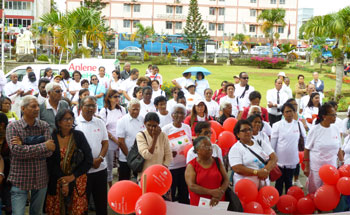
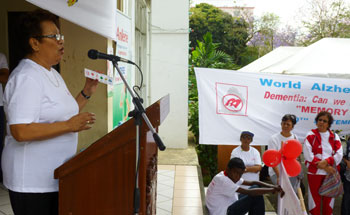
World Alzheimer Report 2015 - The Global Impact of Dementia: An analysis of prevalence, incidence, cost and trends
World Alzheimer Report 2014 - Dementia and Risk Reduction: An analysis of protective and modifiable factors
World Alzheimer Report 2013 - Journey of Caring: An analysis of long-term care for dementia
World Alzheimer Report 2012: Overcoming the stigma of dementia
World Alzheimer Report 2011: The benefits of early diagnosis and intervention
World Alzheimer Report 2010: The global economic impact of dementia
World Alzheimer Report 2009
WHO has released a paper about" Tobacco and Dementia"- the serious risk that tobacco use creates for dementia. As many as 14% of Alzheimer's disease cases are potentially attributed to smoking.
Factsheet
Key message points
Tobacco use and Dementia
September is World Alzheimer's Month!
September 2014 marks the third global World Alzheimer’s Month™, an international campaign to raise awareness and challenge stigma.
Alzheimer associations around the world will focus their campaigns on advocacy and awareness with information provision, Memory Walks, media appearances and free memory screenings taking place across the globe.
Read More
Project CSR 2014
Link
The President and the members of the Alzheimer Association wish to inform you that we are doing an outdoor activity, with the collaboration of the Lions Club of Moka, at either the Shoprite shopping centre or the Ebene Mall during the month of December.
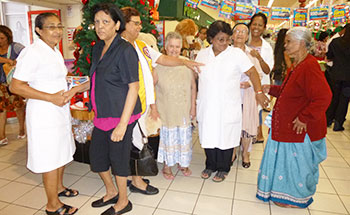
The consultant Dr James Hilary Dennis from World Health Organisation is here to prepare a situational analysis report on Dementia in Mauritius.
He will be in Mauritius until 18th October 2013.
He visited the Alzheimer Centre yesterday for a working meeting with staffs, carers and parents.
Please send us your suggestions for him to include in his report.
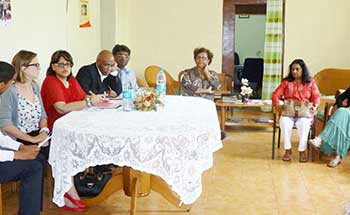
This month we launched the World Alzheimer Report 2013, which focusses on the journey of caring, with a detailed analysis of long-term care for dementia worldwide. Successful launch events took place in Washington D.C. on 19 September, in London on 20 September and in Beijing on 26 September. Marc also presented the report at a World Alzheimer's Month event hosted by Federazione Alzheimer Italia in Milan. With this fifth report of its kind, the World Alzheimer Reports have gained a reputation as the authority on dementia worldwide. Read More
Public Conference Program (Mauritius)
13:30 Welcome address by President of Association Alzheimer - Dr Ameenah Sorefan
13:35 Speech by – Her Worship the Mayor of Quatre Bornes - Mrs. Meetoo Dayantee Rooma
13:45 Speech by – H.E. Mrs. Monique Agnes Ohsan Bellepeau, Vice President of the Republic
14:00 Introduction of Speakers
14:10 Talks by Dr G.Moutou(Psycho Geriatrician) ‘’Diagnostic précoce de la Maladie d’Alzheimer’’
14:40 Talks by Dr P.Catteau(Gerontologist) ‘’La prise en charge, jour après jour, de la Personne souffrant de la Maladie d’Alzheimer’’
15:10 Questions and Answers
15:40 Refreshments
September 2013 will be the 2nd Annual World Alzheimer's Month! The global theme for World Alzheimer's Month 2013 is 'Dementia: a journey of caring'.
A Scientific Committee has been set up with the following members: Dr Ameenah Sorefan, Dr Gerard Moutou, Dr Vincenty Oxenham, Dr Pascale Dinan, Dr Dominique Lam, Dr Claude Ricaud, Dr Meera Manraj, Dr Anil Jhugroo, Dr Armelle Staub, Dr Bhavna Ramnauth
Mr. Didier Guillemin has a Bachelor degree in Psychology from the University of Nice Sophia Antipolis, France. He is now at the Association Alzheimer’s Day Care Centre, as the animator, where he prepares and monitors the daily activities.
I chose to study Psychology to understand human behavior and use this knowledge to help others in the best possible way. During my curriculum I had the privilege to work as a volunteer for the Red Cross Nice. Moreover, I also did a placement at the Saint Barthelemy School in Nice, where I worked with 10 year old children on the mechanism of acquiring language.